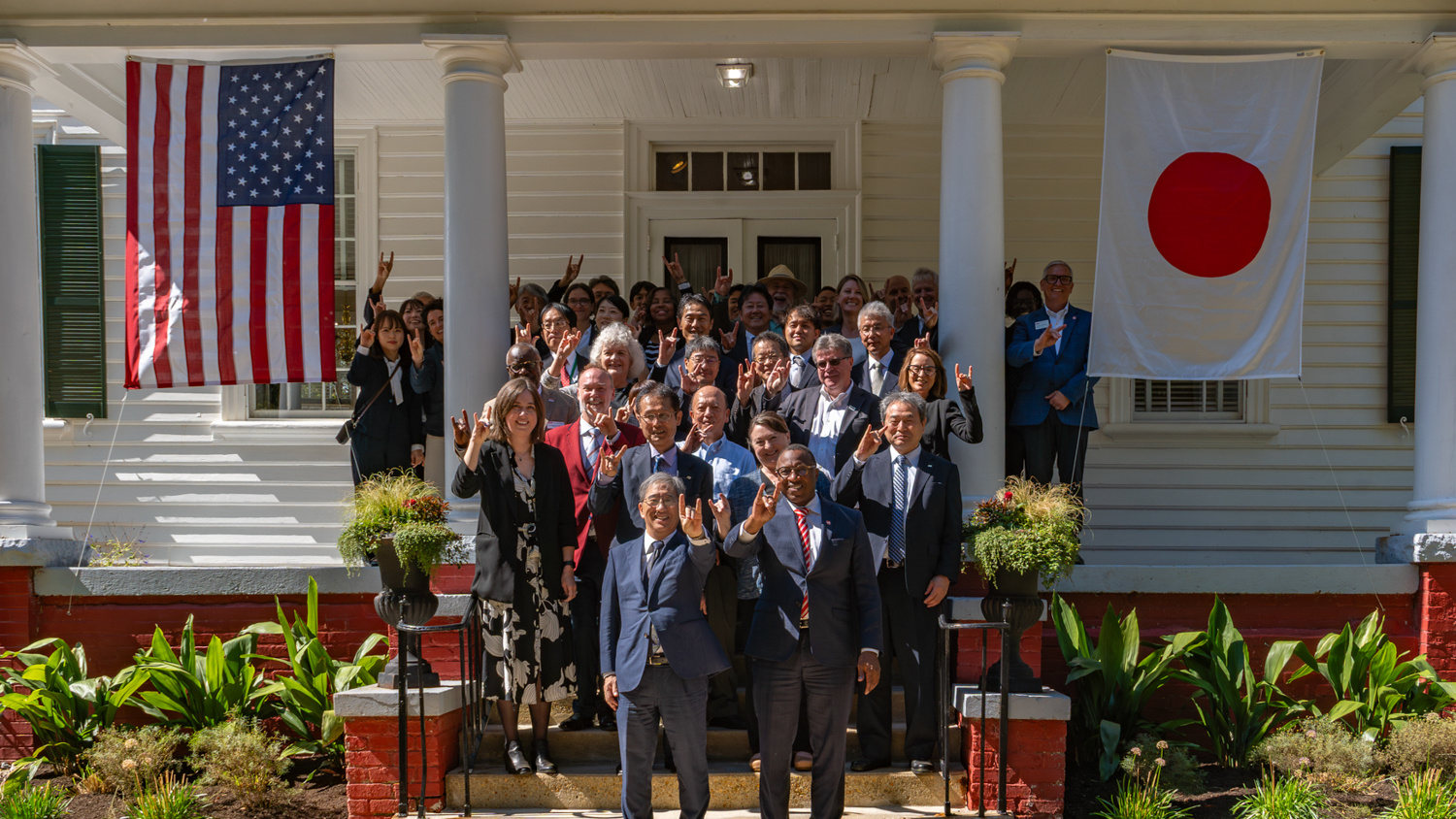Learning Beyond Borders: Making the World their Classroom
NC State students and faculty gain transformative insights through immersive global learning.

Whether teaching or learning, students and faculty from NC State are finding that studying abroad in places like Cuba, Spain and Japan offers enriching global perspectives that can’t be replicated in a traditional classroom.
This past summer, several faculty and students had the transformative opportunity to participate in Study Abroad programs that shaped their global outlook through hands-on experiences.

Stories from Havana: How a Summer Abroad Changed Perspectives
Against the backdrop of colorful streets, vibrant culture, and a complex political history, NC State students and faculty ventured to Havana, Cuba, for an impactful summer abroad for the Cuba: History, Environment and Culture in Havana program. Immersed in the rhythms of Old Havana and the rich biodiversity of the island, participants experienced first-hand the power of place-based learning. This one-of-a-kind program shaped their understanding of Cuba — and of themselves.

History Professor Dr. Nicholas Robins, who established and has led the program since 2014, has had a personal connection to Cuba for 34 years and founded the Cuban Studies Institute at Tulane University in the mid- 1990s. He expressed how pivotal it is for the students to have the opportunity to conduct field research abroad, while also expanding their cultural perspectives by engaging with people in the community.
“The program includes field trips to organic farms as well as historical and cultural sites,” he said. “Students also engage in field research through an assignment which provides them with an opportunity to better understand how Cubans live on a daily basis. I should also note that having the opportunity to live in Old Havana and interact with their hosts and wider community is a complex and nuanced experiential opportunity.”
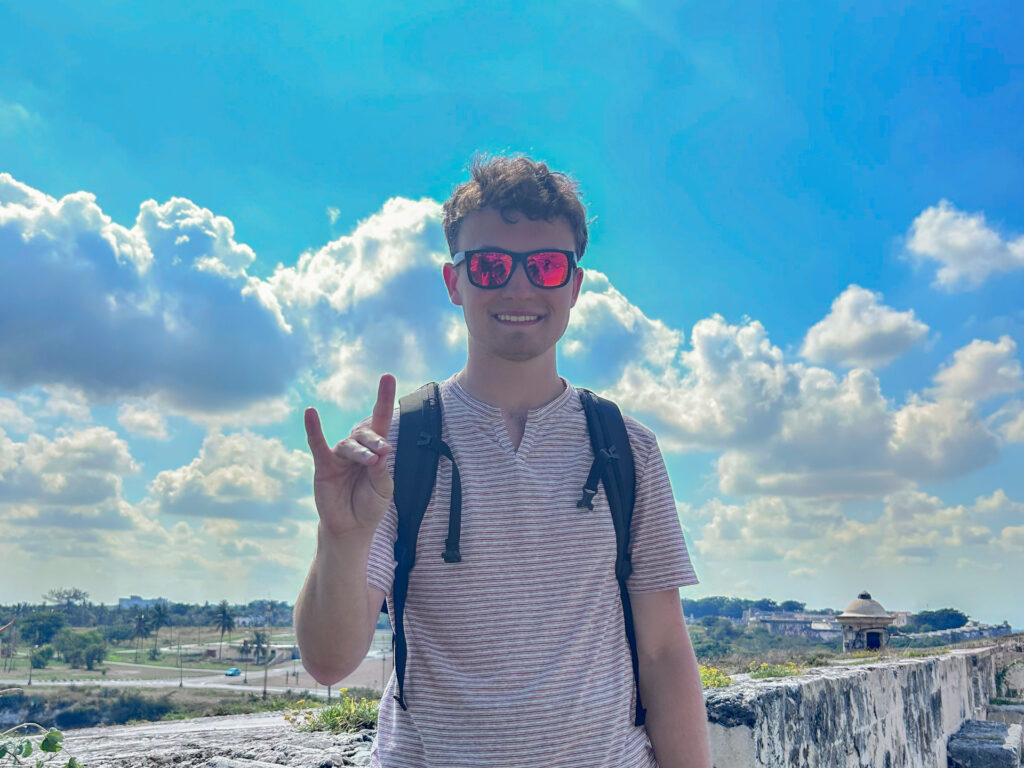
For anthropology students like Nicolas Kratzel, the exploration of a place like Havana, Cuba was an exciting opportunity to understand and navigate new cultures. He was made aware of this study abroad opportunity from Dr. Robins after taking his Global Environmental History course in the fall of 2024.

“When I was informed about the possibility of going to Havana I was completely enthused about not just leaving the United States but also to study a more niche part of history,” he said. “Dr. Robins encouraged us to speak to the locals of Havana, leave the city to understand Cuban culture and the national economy. These kinesthetic experiences helped myself as well as other classmates truly grasp the importance of Cuban society and culture.”
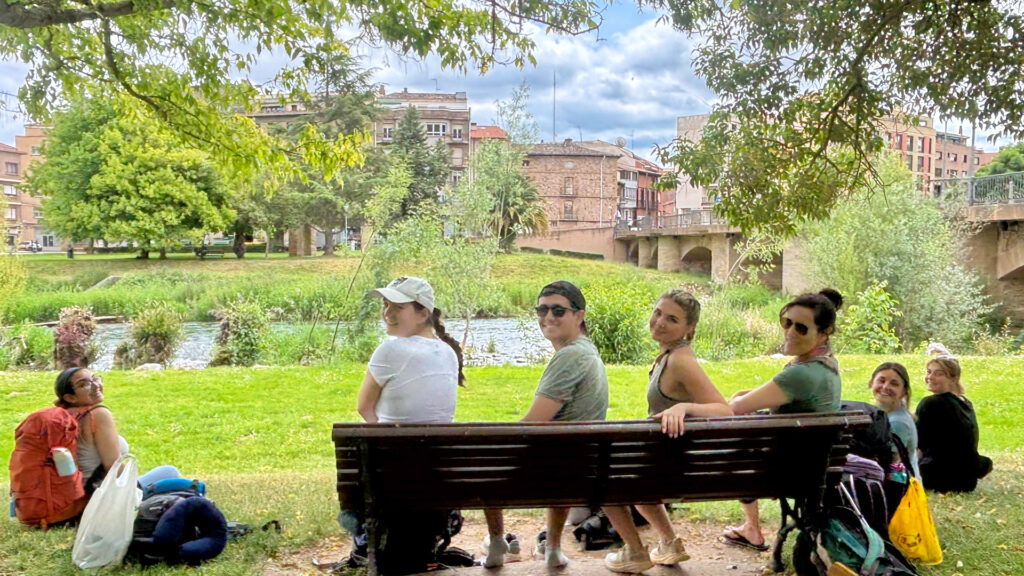
Exploring Culture, Community and Education from Barcelona to the Camino de Santiago
From the bustling heart of Barcelona to the quiet, reflective paths of the Camino de Santiago, NC State students embarked on a journey that challenged their perspectives and deepened their global understanding of youth, education, and community. This immersive course titled Spain: Culture and Community Engagement in Barcelona and the Camino de Santiago offered more than just travel—it invited students to engage meaningfully with youth and community issues and grow personally and professionally through hands-on cultural learning.

Program Leader and Department of Agricultural and Human Sciences Associate Professor Maru Gonzalez knew she wanted to create an impactful learning experience for students when she arrived at NC State in 2018.
“I knew I wanted to create and lead a study abroad program, one that would immerse students in rich, cultural experiences while encouraging deep personal and academic growth,” she said. “I envisioned part of that program unfolding along Spain’s historic Camino de Santiago, a series of ancient pilgrimage routes stretching across Europe and converging at Santiago de Compostela.”

Gonzalez designed the program around culture and community engagement, two areas that transcend disciplines and help students build culturally responsive classrooms. The experience—co-led by Extension Program Manager, Cintia Aguilar—also includes one week in Barcelona, where students visit a community kitchen, a local school, and an immigrant-led cooperative fashion brand that fosters fair labor, environmental sustainability and immigrant justice.
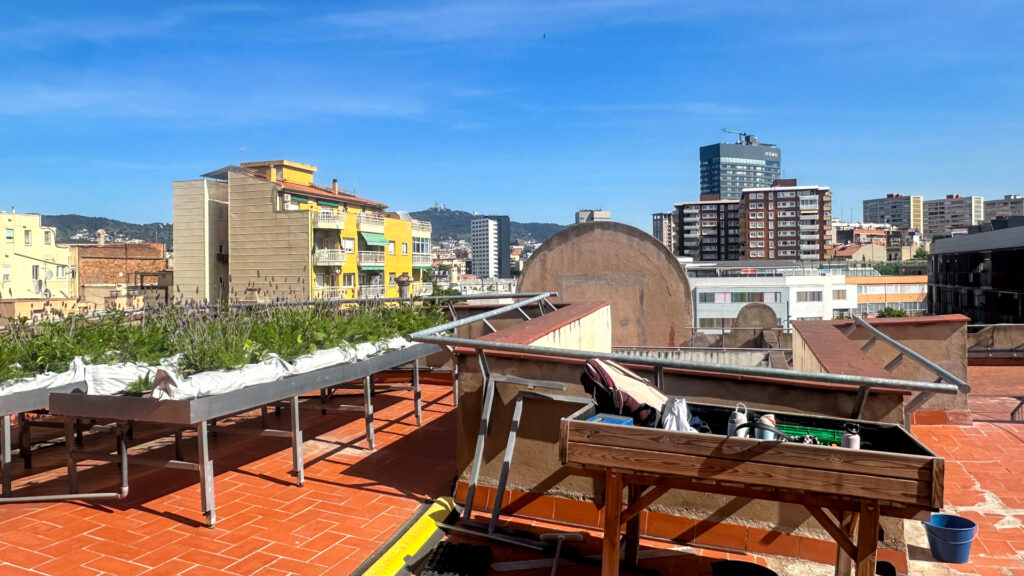
In addition, the program engages with an organization that transforms rooftops into hydroponic gardens to increase food security and social connection for the community. Students also collaborate with a youth center where they design and lead workshops for local and immigrant youth to gain experience in cross-cultural communication and community building.
“Studying abroad is a life changing experience unlike any other students –or faculty– will receive in a traditional classroom setting,” Gonzalez said. “Time and again, students remind me of the value of community, connection, and shared discovery.”

College of Education student Mallory Kilgore embarked on the study abroad experience in Spain in order to get out of her comfort zone and broaden her perspective in a global context.
“I learned so much about living in the moment (as cheesy as that sounds, it’s true),” she said. “We were so busy, yet intentional between our week in Barcelona and our week on the Camino that all my life stressors and worries seemed so little and I was able to look at them through a completely different lens. I realized how fast paced America is and how Spain is much more focused on interaction and detail. It was truly an eye opening experience being outside of the United States.”
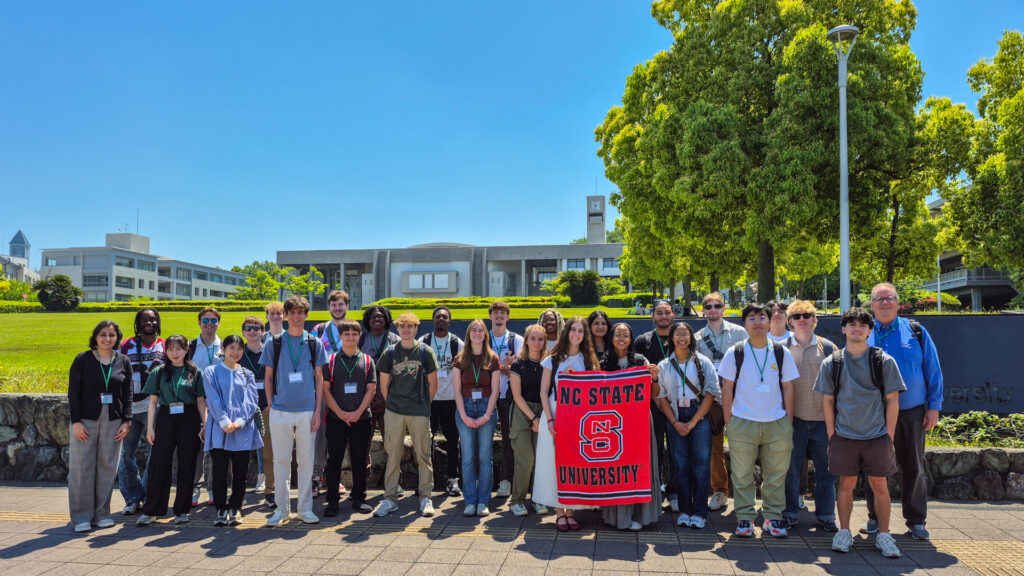
A Firsthand Look at Global Business, Technology and Supply Chain Strategy in Nagoya
In the heart of one of Japan’s leading industrial centers, NC State students immersed themselves in the world of global business, innovation, and advanced manufacturing with the study abroad program, Japan: Operations Management & Information Systems Management in Nagoya. From classroom learning to site visits at major corporations like Toyota, the program offered a rare, behind-the-scenes look at the systems and strategies that power one of the world’s most technologically advanced economies. Students returned with a deeper understanding of international business—and a new appreciation for how culture, efficiency, and innovation intersect in Japan’s economic engine.
For Program Leader and Poole College of Management Professor Sara Khan, this program was an inspiring way for students to connect academic learning to cultural insights in a meaningful way. She was excited to lead the program due to its connection to education and hands-on global learning.
“I was inspired to lead this program because it brings together two areas I’m passionate about: technology-driven business education and global learning experiences,” she said. “Japan, and Nagoya in particular, is an ideal setting to explore both. As a hub for innovation, operations excellence, and cultural heritage, Nagoya offers students a rare opportunity to see how information systems and operations management principles are applied in real-world contexts, from automotive giants like Toyota to agile local tech startups like Optimind.”
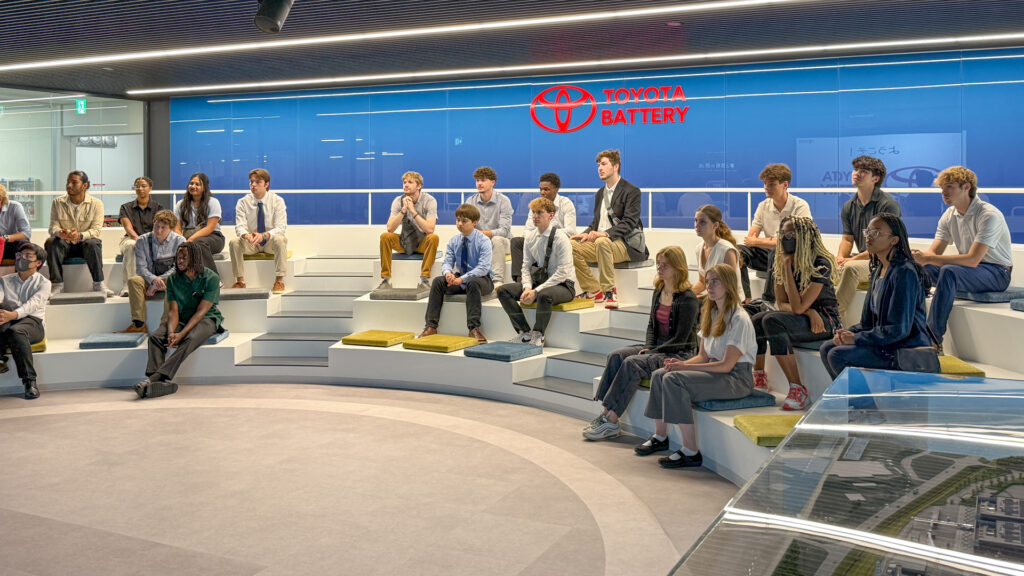
In addition to attending industry visits to companies like Toyota and Optimind, students engaged in interactive guest lectures on Japanese culture and economy, which contextualized global business practices in a local setting. They also participated in activities such as calligraphy, tea ceremonies, and origami to become culturally immersed in traditional Japanese experiences.
Blending real-world industry visits with global business theory and rich cultural experiences, this study abroad program equips students with the skills and perspectives needed to thrive in an increasingly interconnected global economy.
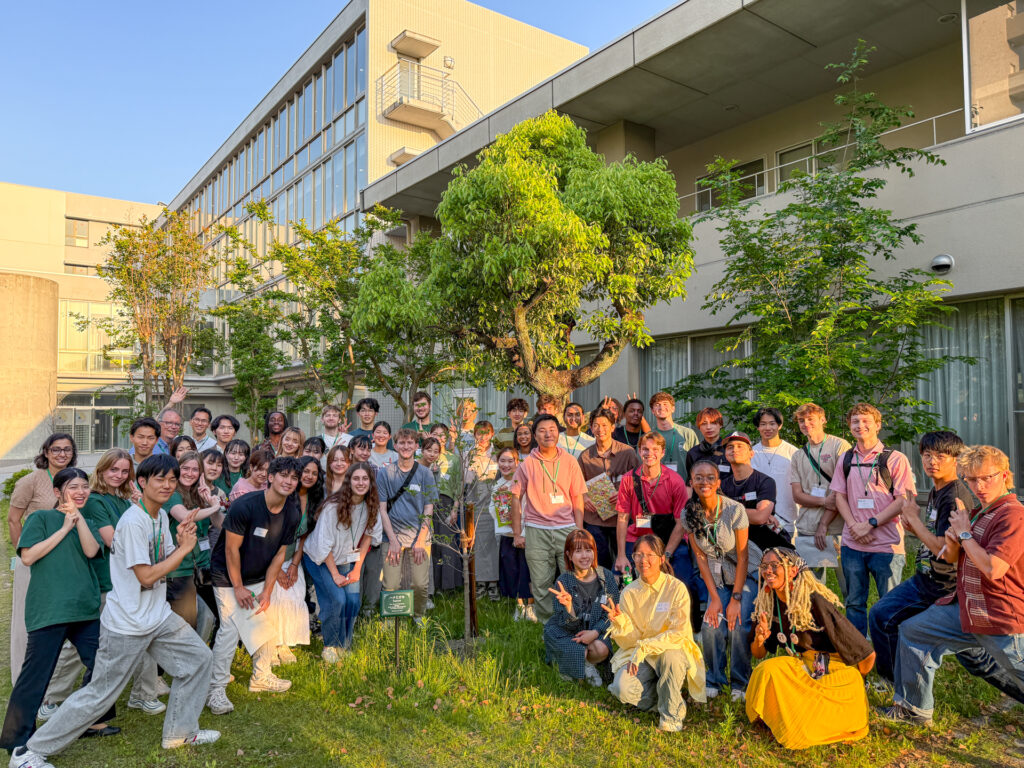
“This program expands students’ perspectives beyond classroom learning, providing them with the ability to connect global business theory to practice in a different cultural and economic environment,” Khan said. “Exposure to Japanese business practices, operations systems, and cultural values equips students with skills that are critical for careers in international business, operations, and technology management. The cultural immersion also builds adaptability, cross-cultural communication, and problem-solving skills, qualities highly valued by employers in an increasingly globalized job market.”

Poole College of Management student Aliya Stephens embarked on the study abroad experience to Nagoya to experience learning outside of the United States after being encouraged to travel by her father. She learned that it’s important to network and try new things in her professional pursuits.
“My experience abroad has helped me prepare for my future career by showing me how important it is to make connections and take risks that are uncertain,” she said. “Something I learned about myself is that I’ve grown more independent and more confident in what I want to do. Being able to go so far from home made it easier to see how fun and exciting it is to travel and explore.”
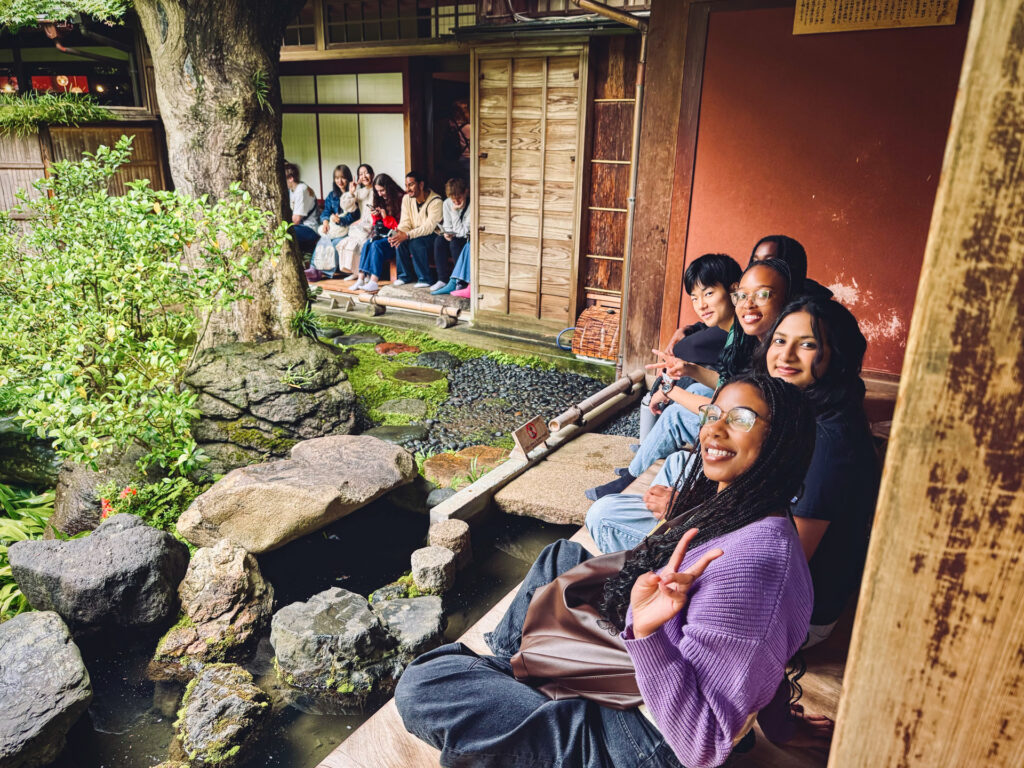
Beyond the Classroom: Expanding Minds and Horizons through Global Learning
These three distinct programs—whether exploring cultural identity in Cuba, engaging with youth and community in Spain, or navigating global business practices in Japan—demonstrate the powerful impact of global learning for both students and faculty. Studying abroad allows participants to move beyond the boundaries of traditional education, fostering cultural competency, personal growth, and academic enrichment. Through these immersive, place-based experiences, NC State faculty and students truly make the world their classroom—learning beyond borders in ways that prepare them to lead and thrive in an interconnected global society.
- Categories:


